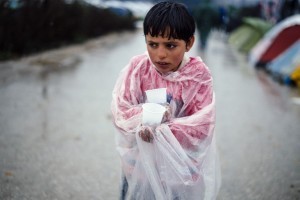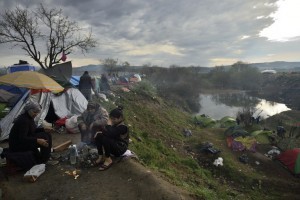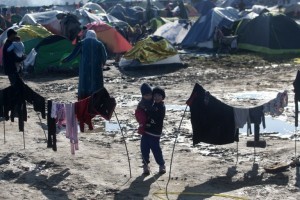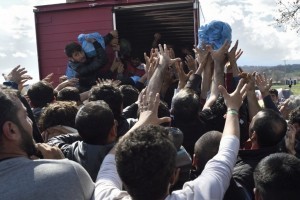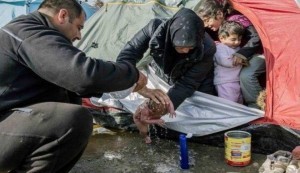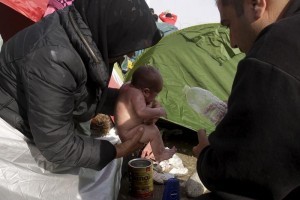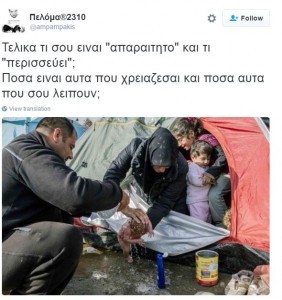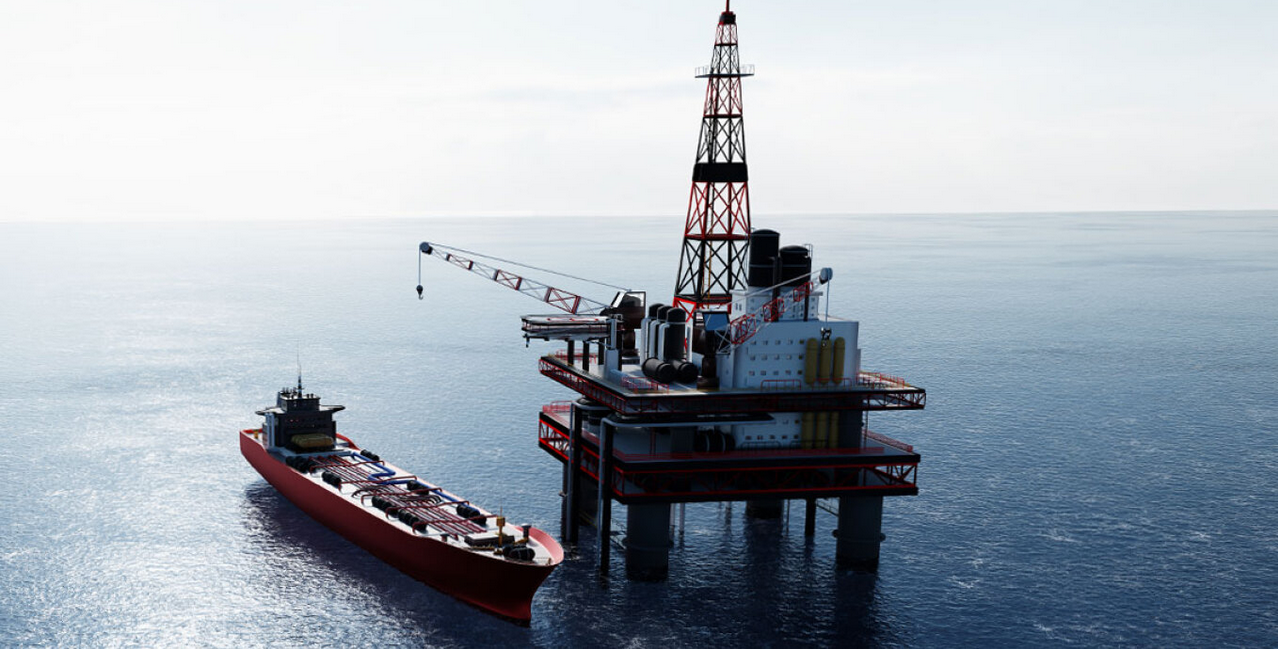The Centre for Control and Prevention of Diseases (KEELPNO) released a press report Friday informing Greek authorities that a 9-year old Syrian refugee boy had been diagnosed with hepatitis A. The virtual complete lack of any sanitary controls in the muddy swamp of the refugee camp in northern Greece, where 14,000 people, including young children live under wretched conditions has exposed the total incompetence of the Greek government. After the case of hepatitis was registered doctors and NGOs are gravely concerned of the spreading of the disease. The National Health Centre was not informed of the case, while sources say the Greek military could be mobilised to bring in fresh water potable water. KEELPNO is trying to pin point where exactly in the camp the case was recorded in order to decide whether people in the vicinity of the boy need vaccinations. Conditions at the refugee camp are described as ‘hellish’, especially after the recent rainfalls and the drop of temperatures. The picture of the newly born entering life in a squalid, muddy camp has gone viral on social media in Greece, highlighting not only the ineptitude of Greek authorities to deal with the humanitarian crisis, but also the cold calculating inhumanity of countries closing their borders sand turning their heads on people suffering.
9-year old Syrian boy with Hepatitis A, Fears of wider outbreak at Idomeni refugee camp! (pics)
Europeans show indifference to tragic conditions of refugees


